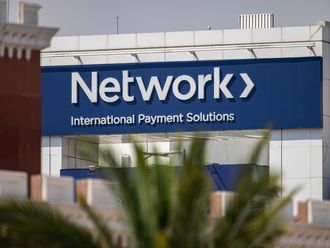
After writing 30 books, most of them international bestsellers, celebrated author John Grisham says he is invisible on occasion. The richest living crime author in the world was estimated to have a personal fortune of $600 million (about Dh2.2 billion) last year but when he is spending it, no one seems to notice.
“Quite often I can be in a bookshop, standing beneath a great big picture of myself, and paying for a book with a credit card clearly marked John Grisham,” he said in a British newspaper in 2009. “Yet no one recognises me.”
Grisham’s gripe is that he is a famous author in a country where no one reads. But with or without achievements or eponymous posters to their credit, credit card customers all over the world share a complaint with him: going unnoticed.
UAE residents have long nursed grievances that fall under the one-bill-fits-all category of credit cards. But banks have been working hard to respond, and to quieten at least some of the gripes. Combined credit card offerings in the market now include, above its classic usage as line of credit, vouchers, discounts, perks and an assorted bunch of privileges. The number of issuers, cards and cardholders also continues to multiply. A senior banking official says the UAE’s competitive credit card market now has more than 25 issuers. “With approximately four million credit cards in circulation, spending on credit card is growing by about 20 per cent annually,” says R. Sivaram, Senior Vice-President and Cards Business Head, Emirates NBD. “As compared to other developed markets, payment by cash still dominates the UAE and this presents a big opportunity for issuers to drive usage.”
The rainmakers: consumer innovations
“In this market with its large number of issuers, customers have many choices,” says Sivaram. “Emirates NBD has been successful by offering a combination of innovative benefits, partnerships, rewards and security.” Besides several popular credit cards, the bank was among the first to introduce password protection for online shopping with Visa- and MasterCard-certified DoubleSecure and the first to embed a credit card on a mobile phone, in partnership with Visa and Etisalat.
Faraaz Ali, Cards Division Head, Middle East and North Africa at Citibank, also has an impressive list of innovations.
“We are pioneers in the UAE — having launched the first credit card, the first Emirates co-branded credit card offering Skywards miles, the first Platinum card and the first multi-airline rewards card,” says Ali. “Presently, Citibank offers the best rewards across airlines and movies, along with airport lounge access, free golf, and concierge services.”
But there are compelling reasons that make domestic consumers choose one credit card over others. “Customers should choose a credit card to reflect their lifestyle and spending habits,” says Ali. “For example, for customers who travel frequently a credit card like the Emirates Citibank Ultimate would be a good choice as it gives them miles for every dollar spent and free lounge access. They can also use their miles to get free flights or upgrades.” Ashraf Bibars, Senior Vice-President and Head of Retail Banking Group, Union National Bank, also explains why. “The key differentiators within the cards market are relationship with the bank, customer service, interest rates, ease of application, fees, key benefits such as reward points or cashback, special offers and discounts and loyalty programmes.”
Their views are corroborated by Nimish Dwivedi, Head of Payments at Mashreq. “Today’s customer needs are ever changing, ever evolving. Customers continue to become more discerning, with expectations spanning product benefits, superior service and overall experience. At Mashreq, our aim is to provide a suite of products that not only meets different needs but creates better and more memorable experiences.”
The summons: a call for action
Citibank says that although the UAE’s credit card industry is slowly recovering from a period of stagnation that started in 2009, growth is imminent. “Customers are using their credit cards very cautiously but throughout 2012 we have noticed that discretionary spend is on the rise,” says Ali. “We expect the industry to grow at 4-5 per cent in 2013.
“We see the customer becoming more cautious in his spending and lending habits,” adds Ali. “The customer will demand more flexibility from a bank in reward choices and will be using the cards in online and overseas environments. Citibank is leading the effort to create better products designed to work safely and securely — online and abroad.”
Sivaram predicts that Europay, MasterCard and Visa (EMV chip) integrated circuit cards and PIN technology will get fully established soon. “Based on guidelines from the UAE Central Bank, issuers are converting their debit cards to EMV chip on priority basis and this will be followed by credit cards,” he says. “We believe this move will significantly help in increasing protection against fraudulent usage.”
Dwivedi adds that as the market continues to evolve, it will become increasingly globalised. “Going forward, technology and unique propositions will be the key drivers in meeting customers’ evolving needs.”
These sentiments are echoed in American Express’ strategy of merging convenience and technology to drive usage. The recent launch of the American Express Selects App allows cardholders to access offers from merchant partners on their iPhones or iPads within minutes. In another example of technology-led convenience, Commercial Bank of Dubai’s (CBD’s) dual-currency card is the first of its kind in the region. Earlier this year, CBD’s issuance agreement with China UnionPay resulted in the launch of the CBD UnionPay debit card, which allows users to make dirham or renminbi payments with ease.
The last juror: control to the customer
Banks are furiously competing with each other by offering benefits that run between the ordinary and the outlandish. In turn, consumers have stopped treating their credit cards as a convenient way to pay for goods and services and are now looking at them as added value.
But even the most attractive rewards can lose their appeal over a period of time as better suited offers come along, especially from competitors. Points can become harder to earn or to redeem within an individual rewards programme. There is also the John Grisham-style grudge of not being recognised as an individual, especially among infinite offerings.
It makes sense to review all available options periodically — to ensure best fit and the best possible deals. Consumers can still have the last word in the world of credit cards.










